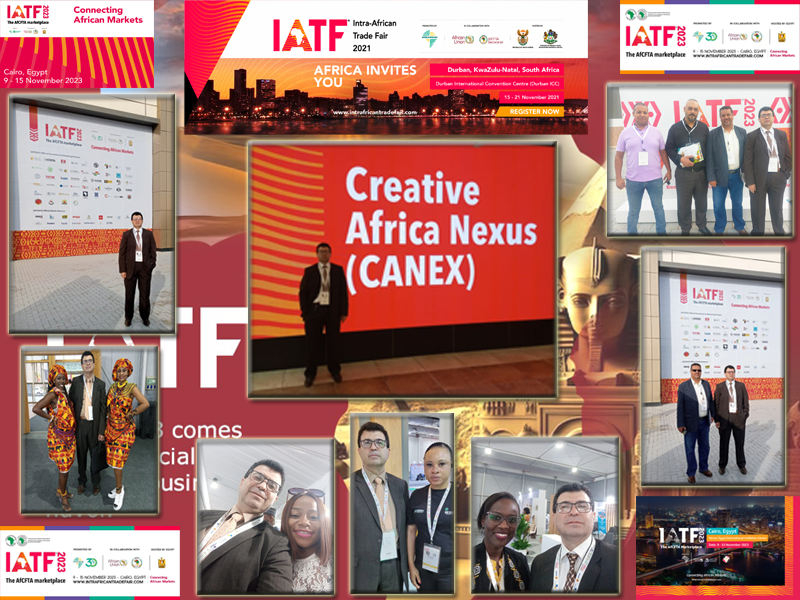My experience at the AFCFTA African Marketplace 2023 exhibition in Cairo, the capital of the Arab Republic of Egypt, was a unique journey that began months before the event itself. As an avid participant in African events, I received the announcement of the exhibition four or five months prior to its commencement. Although the exact date escapes me, my enthusiasm led me to express interest in being an exhibitor.
Initially, our aspirations to be exhibitors were curtailed by exorbitant prices, prompting us to settle for visitor registration. Registering as a visitor, I discovered, was a multifaceted process that I found to be rather lengthy. As a piece of advice, streamlining the registration form and reconsidering exhibitor space pricing could enhance the overall experience, lessons learned before the exhibition commenced.
Opting to arrive late on the first day, a departure from my usual early attendance proved to be a strategic move. Typically, the exhibition’s opening day attracts a substantial number of security personnel, deterring early attendance unless one is involved in the opening ceremonies. It was surprising, however, to find the exhibition sparsely populated on the first day, a deviation from my previous international and local exhibition experiences.
I learned that the delayed arrival of some exhibitors led to the declaration of Friday as an alternative first day of the exhibition. My decision to attend on Saturday yielded a more promising outcome with increased foot traffic and exhibitor participation. However, the density fell short of expectations due to unrented spaces, attributed to high rental costs and a lack of logical arrangement of exhibitors.
The absence of exhibition logo-printed nametag holders on Saturday raised questions about attendance figures. While the exhibition catalog was plentiful and well-produced, the absence of logo prints suggested either a small turnout or an abnormal influx of ordinary visitors on Friday.
Turning attention to the exhibition’s activities, I observed a predominant focus on cultural events rather than commercial or investment opportunities. Most exhibitors from African countries showcased products in food, beverages, leather, and clothing, with minimal representation of technology, household goods, or appliances.
Notably, the Egyptian presence was weak, with currency-related challenges hindering import-export transactions. The absence of agreements for currency exchange, except for Ghana accepting Egyptian pounds, raised concerns. The need for diversified currencies beyond dollars, euros, or Chinese yuan was apparent.
One noteworthy observation was the lack of market research by Egyptian businessmen. A peculiar incident involved an Egyptian entrepreneur offering iron pipe products to a Rwandan official, despite being informed that Rwanda and neighboring countries already produced similar items at a lower cost due to proximity. This emphasized the importance of thorough market research before venturing into international business.
In conclusion, while the exhibition was not subpar, it fell short of expectations. Looking ahead to the next edition in Algeria, addressing the highlighted issues is crucial for the success of future events. The challenges in Algeria, including visa processes and market entry barriers, underscore the need for meticulous planning and proactive measures to overcome obstacles. In subsequent articles, I intend to delve deeper into specific aspects of the exhibition, highlighting areas that warrant attention and improvement.
Read about why you need a business consultant!

